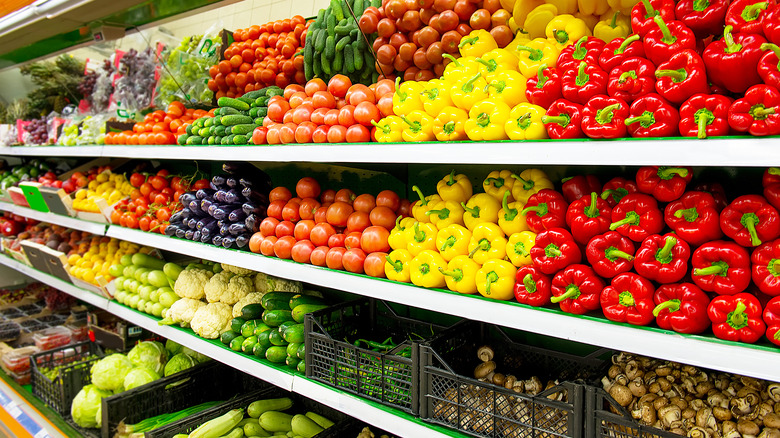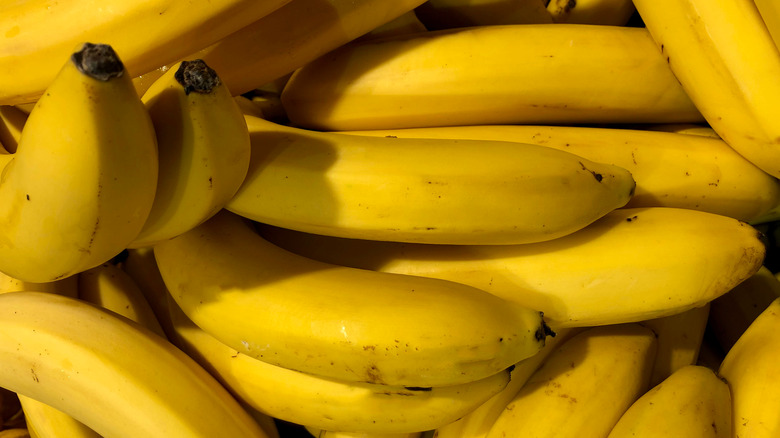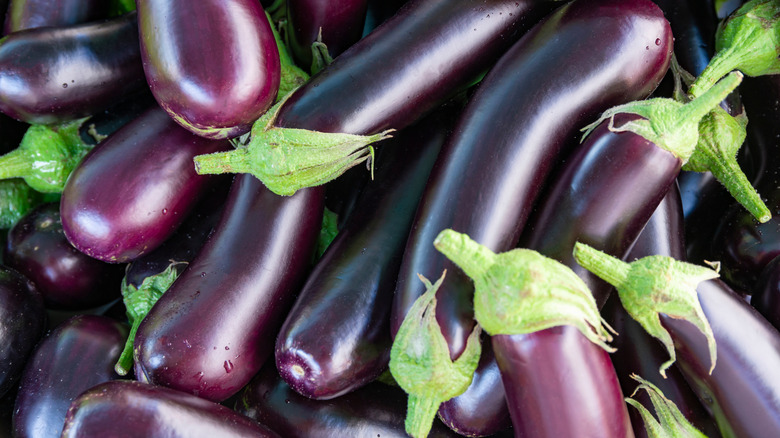Fruits And Vegetables With The Least Nutritional Value
At the end of 2021, YouGov America reported that strawberries, bananas, watermelons, pineapples, green grapes, red grapes, blueberries, tangerines, lemons, and clementines were the top 10 most popular fruits among adults. As for vegetables, potatoes, sweet corn, garlic, tomatoes, green beans, carrots, broccoli, onions, vine tomatoes, and cucumbers made the top 10.
This should come as good news considering the American Heart Association (AHA) recommends getting in 4.5 cups of fruit and vegetables every day (yes, each) — but what if not every item on this list was actually good for you?
Well, it's not so much that they're not good for you — both fruits and vegetables offer different nutritional values. Surprisingly, there are some that don't offer much nutritional value at all. Here, we'll explore which fruits and vegetables really aren't valuable and what to eat instead. Rather than thinking of this as permission to stop eating produce, consider it an invitation to be more mindful about which fruits and vegetables you choose to eat.
Five fruits you might want to avoid
You may have guessed bananas would be on the list. The reason being is their fiber-to-sugar ratio — the riper it becomes the more sugar and less fiber the banana has. Instead of eating bright yellow bananas, choose greener ones. If they're too firm, toss them in a smoothie with a handful of leafy greens and plant-based milk.
Coconut is another fruit that you may want to avoid because of its high saturated fat content, according to Healthline. A cup of shredded coconut has 27 grams of fat and 89% of it is saturated. If the fat is what you're after, swap coconut for avocado.
Grapes are another popular fruit that may be doing more harm than good. Livestrong states that carb overload, gut issues, allergy attacks, and weight gain are all negative side effects that can come from eating just 1 cup of grapes. Blueberries are a much healthier pick.
Oranges are on the list because of how they affect your teeth. As a citrus fruit, they can erode enamel (per Healthline). Pomegranate and kiwi are both suitable replacements.
Strawberries don't quite make the cut, either — but not for nutritional reasons. The Conversation states that they depend on toxic chemicals and pesticides to grow all year long. You're better off with raspberries or watermelon.
Five vegetables you may want to avoid
Broccoli can leave you feeling gassy and bloated, which is why it's one of the vegetables The Daily Meal suggests avoiding. Show your gut some love with a bowl of cabbage instead.
Celery might be packed with fiber, according to WebMD, but the Environmental Working Group lists them on its "Dirty Dozen" list because it's high in pesticides. Opt for sliced cucumbers as a satisfactory replacement.
How do you spell corn? G-M-O. Delish ranks corn on its list of vegetables that aren't good for you because of its "crazy genetic modifications," which is why many people have corn allergies. Sweet potatoes are a starchy vegetable that's just as delicious and much more nutritious.
Eggplant may be a popular choice for vegetarians and vegans as a meat replacement, but MedicalNewsToday says it can actually result in a burning throat, nausea, vomiting, and heart arrhythmias. If it's a meat replacement you're looking for, portabella or oyster mushrooms and jackfruit will do the trick.
Potatoes aren't ideal because of how we commonly cook them — hello, French fries! Fried and full of salt, baking them without salt and keeping the skin on will help them maintain their nutritional value.
Last but not least, any canned vegetable is a no-go. FitDay listed sulfites, sodium, and traces of BPA as the top 3 reasons why canned vegetables should be avoided. Grab a bag of frozen veggies instead.


